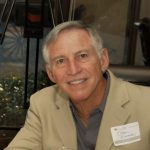
A few days ago, as I loitered at the gym in an impossible attempt to acquire muscles at this advanced stage of life, an adolescent girl of Asian descent interrupted my pretense to join me in conversation. She had learned that I had taught classes at a local university where she planned to attend and wanted “my take” on the institution. Always amenable to take a break from exercise, we proceeded to converse about the value of education and how it impacts the work ethic and performance of the individual upon graduation.
The chalkboard
Jesus used parables to teach about the Kingdom, but given my very limited bandwidth, all that is available to me are stories. So I narrated to her the one about the teacher and the first day of school in Health class. The story goes that she instructed her students to open the assigned textbook and began to guide them through its initial pages. Meanwhile, behind her on the blackboard a large drawing of the human body with its identified major organs, muscles and bones could be easily detected. The days turned to weeks and the midyear exam came upon them with the frenzy of preparation that accompanies it, and through it all, the drawing remained without consideration. To the students’ dismay, the test consisted of only one question, which read, “name all the major organs, muscles and bones of the human body.” To their chagrin, they looked up at the board only to find that for the only time since the first day of school it was completely erased. “Foul”, they cried; “one cannot be tested on material not covered in class.” Quickly came the reply from the teacher, “education is much more than learning what you are told.” On that vein, I would often give my students the same midterm exam two weeks after the original one only to find that the vast majority lost at least one letter grade in the process. The question begs an answer, “was I educating them or helping them to pass a test?”
How we learn
 One of my collateral duties in the latter years with the Feds was to be a member of the board conducting the interviews of candidates for special agent positions. When it came to street procedures and survival techniques, my line of questioning concentrated on whether they could disregard what their professors taught them in class to instead rely on their instincts and common sense to save their lives and the lives of their fellow agents, since “a diploma cannot stop a bullet.” In my humble opinion, real learning leading to real performance is the result of repetition, thus the continuous firearm training of police officers.
One of my collateral duties in the latter years with the Feds was to be a member of the board conducting the interviews of candidates for special agent positions. When it came to street procedures and survival techniques, my line of questioning concentrated on whether they could disregard what their professors taught them in class to instead rely on their instincts and common sense to save their lives and the lives of their fellow agents, since “a diploma cannot stop a bullet.” In my humble opinion, real learning leading to real performance is the result of repetition, thus the continuous firearm training of police officers.
My main takeaway after one undergraduate and two post-graduate degrees came from Dr. Wright, my favorite professor, who persuaded me to write an unknown word on a 3X5 card daily, to keep it my pocket and to use it in conversation as often as possible throughout the day, thereby helping me to properly utilize the English language. At the same time, he insisted that I keep my Hispanic roots and conserve my native language. Much of my “career success” stems from the fact that I am totally bi-lingual and bi-cultural, something not learned in class but during coffee with this great educator.
Let us now go back to the gym and our young student. Turns out that she is not interested in acquiring a liberal arts education but rather a computer science degree in database management and software development. This, of course, changes the conversation, for the more technical, scientific and formula-driven the job, the more important and exact the educational process. The difference between a liberal arts and a “conservative” science degree and its application at the workplace is rather marked. That being said, what choices are available in our spiritual education system?
Spiritual education
As a student for Christ, what course do we take? To our advantage, it is all delineated in one compendium, the Holy Bible. EVERTHING we need to know about our faith is contained therein, buttressed by prayer and fasting. On the one hand, Jesus leaves “no wiggle room” to the Pharisee, nor to us, when He instructs in Matthew 22 the two commandments we must follow, “Love the Lord your God with all your heart, mind and soul and love your neighbor as yourself.” Yet, as we are instructed to make disciples of men during our stay on earth, the Apostle Paul enlightens us in 1st Corinthians 9 to the fact that “we must become all things to all men, that we might by all means save some.” So our marching orders are that we become salt and light to the world using the perfection of God’s word within the context of our humanity. After all, we have the perfect Teacher, the perfect Text and the perfect Father. We may not always get an A on the test, but He is always there to teach us what we need to know if we are willing to learn.
For more on Aleman and Associates, visit linkedin.com/in/omar-aleman-387a9015/
Read more articles by Omar Aleman at: goodnewsfl.org/author/omar-aleman/

Comments